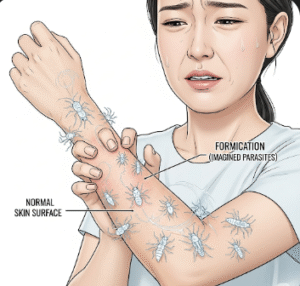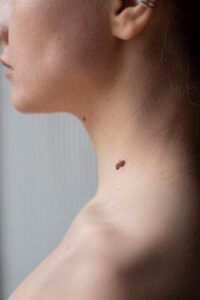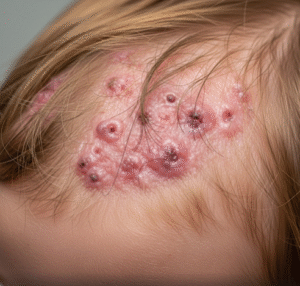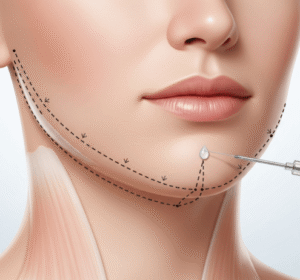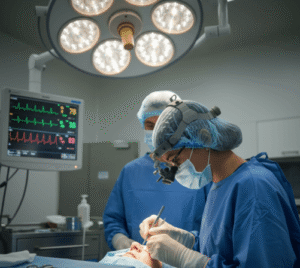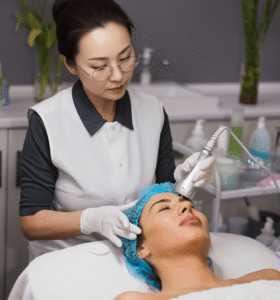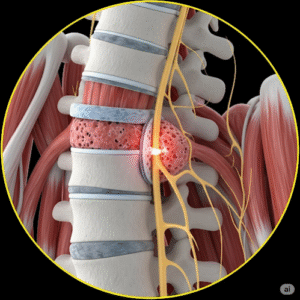Overview
Hydrocele is a condition in which fluid accumulates around the testicle, causing swelling in the scrotum. It is common in infant and young boys, often noticed as a painless enlargement of the scrotum. While many hydroceles resolve naturally within the first year of life, surgery is recommended if the hydrocele persists, enlarges, or causes discomfort.
Hydrocele repair (pediatric hydrocelectomy) is a safe and routine procedure that removes excess fluid and closes the patent processus vaginalis to prevent recurrence. South Korea is renowned for its expert pediatric surgeons, minimally invasive techniques, and excellent post-operative care, making it a preferred destination for international families.
What is Hydrocele Repair (Child)?
Hydrocele repair is a surgical procedure to remove accumulated fluid and prevent recurrence. Key aspects include:
- Excision of the hydrocele sac surrounding the testicle
- Closure of any communication between the abdomen and scrotum (patent processus vaginalis)
- Preservation of the testicle and spermatic cord structures
The surgery is usually performed under general anesthesia and takes 30–60 minutes. In South Korea, pediatric surgeons often use small incisions and meticulous techniques to minimize scarring and post-operative discomfort.
What are the Benefits?
- Permanent correction of hydrocele in children
- Pain-free procedure with minimal discomfort
- Prevention of recurrence through proper surgical closure
- Improved scrotal appearance
- Quick recovery → children usually resume normal activities rapidly
- Safe, routine procedure in specialized Korean pediatric hospitals
- Minimal scarring with careful surgical technique
Procedure Details
1) How should I prepare for Hydrocele Repair (Child)?
- Preoperative evaluation → Physical examination, ultrasound if needed, blood tests
- Medication instructions → Avoid certain medications or supplements before surgery
- Fasting → Typically 6–8 hours prior to anesthesia
- Parental guidance → Parents are briefed on procedure, anesthesia, and post-op care
- Comfort measures → Encourage calm environment and reassurance for the child
2) What happens during the procedure Hydrocele Repair?
- Anesthesia → General anesthesia ensures the child is asleep and pain-free
- Incision → Small cut made in the lower abdomen or above the scrotum
- Hydrocele sac removal → Fluid-filled sac carefully excised
- Closure → Communication with the abdomen (if present) is closed; sutures are fine and absorbable
- Duration → Usually 30–60 minutes depending on complexity
- Monitoring → Vital signs continuously observed during surgery
3) What happens after a Hydrocele Repair (Child)?
- Recovery room → Child monitored until fully awake and stable
- Hospital stay → Usually same-day discharge or 1-day stay depending on the child’s condition
- Pain management → Oral or mild analgesics prescribed for discomfort
- Wound care → Keep incision clean and dry; watch for signs of infection
- Activity restrictions → Avoid rough play or swimming for 1–2 weeks
- Follow-up visits → Ensure proper healing, scrotal appearance, and absence of recurrence
Risks / Benefits
Risks
- ➤ Mild pain, swelling, or bruising at incision site
- ➤ Infection (rare)
- ➤ Recurrence of hydrocele (rare if properly repaired)
- ➤ Injury to the testicle or spermatic cord (very rare)
- ➤ Bleeding or hematoma formation
Benefits
- ➤ Permanent correction of hydrocele
- ➤ Minimal post-operative pain and rapid recovery
- ➤ Improved scrotal appearance
- ➤ Safe procedure in experienced Korean pediatric hospitals
- ➤ Reduced anxiety for parents and child with world-class care
Recovery and Outlook
- Immediate recovery → Child may experience mild swelling or tenderness for a few days
- Wound care → Absorbable sutures usually do not require removal
- Return to normal activity → Most children resume school or light play within 1 week
- Long-term outlook → Excellent; recurrence is rare when properly repaired
- Post-operative monitoring → Korean pediatric hospitals provide thorough follow-up to ensure optimal healing
Parents are also guided on hygiene, pain management, and activity restrictions to ensure smooth recovery.
When To Call the Doctor
Contact the pediatric surgeon if you notice:
- ⚠️ Redness, swelling, or discharge at incision site
- ⚠️ Persistent or severe pain
- ⚠️ Fever or signs of infection
- ⚠️ Recurrence of swelling in the scrotum
- ⚠️ Bleeding or unusual bruising
Prompt consultation ensures early intervention and avoids complications.
Best Korea Option / Process
South Korea is a leading destination for pediatric hydrocele repair due to:
- Experienced pediatric surgeons trained in minimally invasive techniques
- Modern hospitals and sterile operating rooms
- Comprehensive post-operative care including pain management and follow-up
- Minimal hospitalization for same-day or 1-day discharge
- English-speaking staff and international patient coordination
Top Pediatric Hospitals for Hydrocele Repair in Korea:
- Severance Children’s Hospital (Yonsei University) – Expert pediatric urology team
- Asan Medical Center, Seoul – Advanced pediatric surgical care
- Samsung Medical Center, Seoul – Specialized in minimally invasive pediatric procedures
- Seoul National University Children’s Hospital – Comprehensive post-op monitoring and family support
👉 For children with persistent or symptomatic hydrocele, Hydrocele Repair in Korea is safe, effective, and minimally invasive, providing excellent long-term results and rapid recovery.


